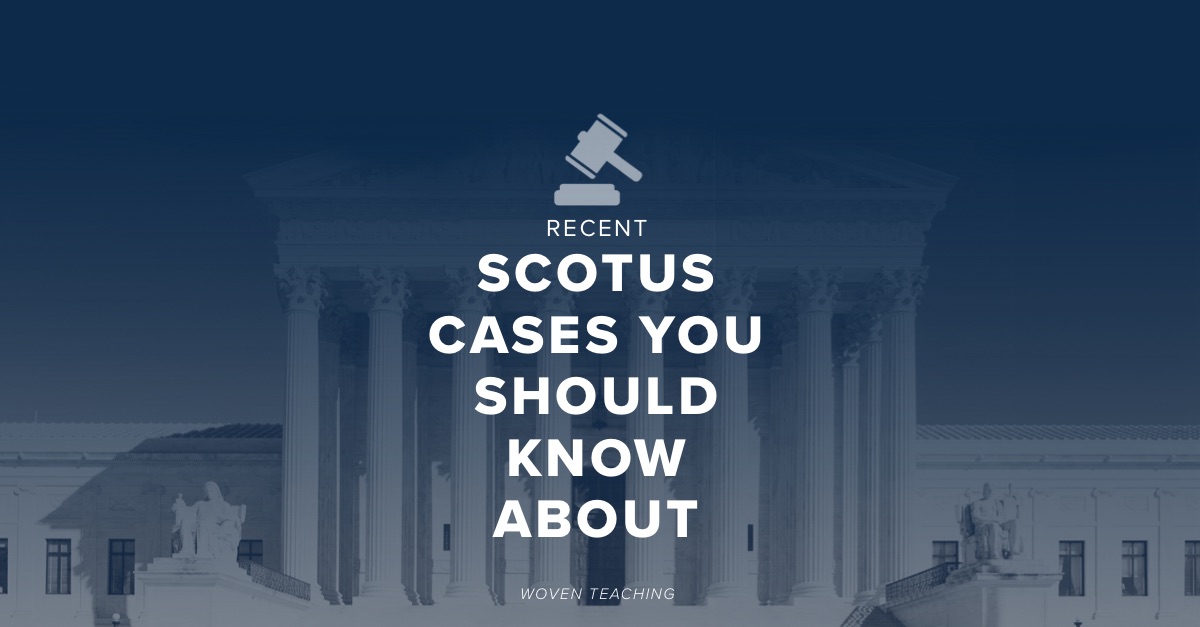SCOTUS and Human Rights: July 2019
/By Nikki Bambauer and Shivani Banfal
The Supreme Court of the United States recently handed down a number of decisions with implications for human rights in the US. Which of these cases have you been following?
Department of Commerce v. New York
Summary: Department of Commerce v. New York concerned a challenge to the Trump administration’s decision to add a question about citizenship on the 2020 U.S. Census.
Possible human rights issues: If a question about citizenship is added, fewer people may respond to the census, leading to inaccurate information. It could also lead to redistricting and less political influence for voters of color.
Decision: The Supreme Court has rejected the Trump administration’s stated reason for adding a question about citizenship to the 2020 census. Because it needs to print the census forms soon, the administration may or may not offer new justifications for adding the question.
Learn more >
Flowers v. Mississippi
Summary: Curtis Flowers was tried six times and eventually sentenced to death in 1996. In two of the trials, the prosecutor was found to have rejected potential jurors if they were Black. The Supreme Court will decide if a prosecutor’s history of racial discrimination can be dismissed as irrelevant.
Possible human rights issues: Racial discrimination during jury selection can deny the accused equal protection of the law.
Decision: The Supreme Court reversed Curtis Flowers’ conviction. Justice Kavanaugh stated that the evidence suggests that “the State was motivated in substantial part by a discriminatory intent” when it rejected potential Black jurors.
Learn more >
Gamble v. United States
Summary: Gamble v. United States concerned double jeopardy, or the prosecution of a person twice for the same offense. Terance Martez Gamble, who had previously served time for a different crime, was convicted of possession of a firearm in both state and federal court. Because of his criminal record, he was not allowed to own a firearm. He appealed, arguing that the court was wrong in its ruling because the double jeopardy clause of the Fifth Amendment should prohibit the federal government from prosecuting him for a crime that the state of Alabama had already tried him for.
Possible human rights issues: The double jeopardy clause is a fundamental protection of individual liberty and an important safeguard against government harassment and overreach.
Decision: The court issued a 7-2 opinion upholding the judgment of a lower court. SCOTUS held that an individual charged for the same crime by two different sovereigns (i.e. a state government and the federal government) does not violate the double jeopardy clause of the Fifth Amendment.
Learn more >
Mitchell v. Wisconsin
Summary: In 2013, Gerald P. Mitchell was arrested for operating a vehicle while intoxicated. At the time of his arrest, he was taken to the hospital for a test to reveal his blood alcohol level. Mitchell argues that he was unconscious and thus did not consent to the test, and that the arresting officer should have had a warrant. The state of Wisconsin argued that by driving a vehicle on a state road, Mitchell automatically gave his permission to have his blood tested; Mitchell appealed his conviction.
Possible human rights issues: The Fourth Amendment of the US Constitution protects people from unreasonable searches and seizures by the government. Blood draws can reveal much more about an individual than simply their blood alcohol content; they can also expose highly intimate medical details, thus violating a person’s constitutional right to privacy.
Decision: SCOTUS held that if a driver is unconscious and cannot take a breathalyzer test, the circumstances generally dictate that a warrant is not required for a blood test.
Learn more >
Virginia House of Delegates v. Bethune-Hill
Summary: Virginia House of Delegates v. Bethune-Hill concerned a request to appeal a lower court’s decision about voting districts. In that case, it was determined that the borders of 11 Virginia legislative districts were drawn as unconstitutional racial gerrymanders.*
*Gerrymandering is the process of drawing borders for legislative districts that favor one party over the other.
Possible human rights issues: Gerrymandering is often used by both major US political parties to increase the chances of winning in elections. When done along racial lines, gerrymandering can dilute the voting power of people of color.
Decision: SCOTUS rejected the appeal by Virginia’s Republican-controlled House of Delegates. The lower court’s ruling – that certain legislative district borders were drawn on racial grounds and are thus unconstitutional – stands.
Learn more >

